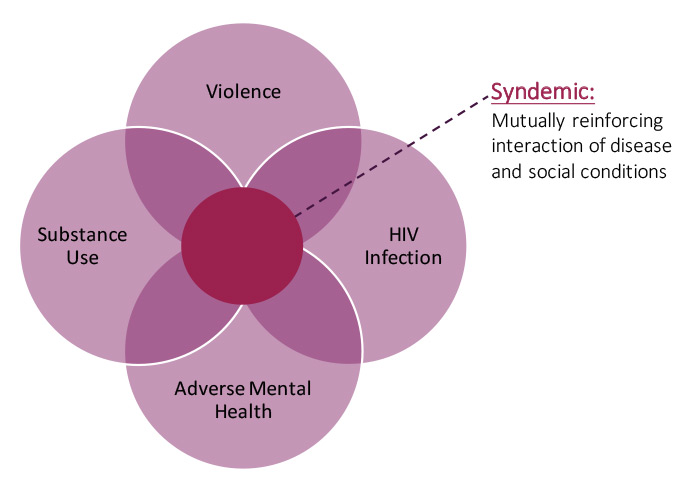WHY SYNDEMIC?

Investigating Syndemic and Trauma Related Influences on HIV/AIDS Etiology
The term “syndemic” was first proposed by Singer (1994) to explain the synergistic interaction of two or more diseases and the social situations in which these diseases develop. Later, Singer called attention to the frequently co-occurring epidemics of substance abuse, violence, and HIV (Singer, 1996, 2006).
Recently, The Lancet (2017) released a new series on Syndemics, which stated “the Syndemic Framework examines the health consequences of identifiable disease interactions and the social, environmental, or economic factors that promote such interaction and worsen disease” (Vol. 389).
 The iSTRIVE Research Lab utilizes the Syndemic Framework to conceptualize diseases as bio-psycho-social-environmental processes, as it represents a comprehensive approach when examining diseases and health disparities (Halkitis, 2013).
The iSTRIVE Research Lab utilizes the Syndemic Framework to conceptualize diseases as bio-psycho-social-environmental processes, as it represents a comprehensive approach when examining diseases and health disparities (Halkitis, 2013).
Based on the literature and previous studies of the iSTRIVE team, the synergistic epidemics (i.e., syndemic) of violence, substance abuse, adverse mental health, and HIV significantly contribute to the burden of disease. Further, ethnic minorities and marginalized communities are disproportionately affected by this syndemic.
Hence, this syndemic is the main focus of the iSTRIVE Research Lab with the goal of:
- advancing our understanding of the underlying immunological and physiological mechanisms of this syndemic;
- examining the psychological, social, sexual, and reproductive health outcomes due to syndemics;
- developing and implementing interventions that provide maximal reductions in these syndemics while reducing disparities in prevention, care, and treatment.
The iSTRIVE Research Lab seeks to improve the health and social conditions of marginalized populations and underserved communities through rigorous research study designs, scalable interventions, policy recommendations, and dissemination of scientific findings.



